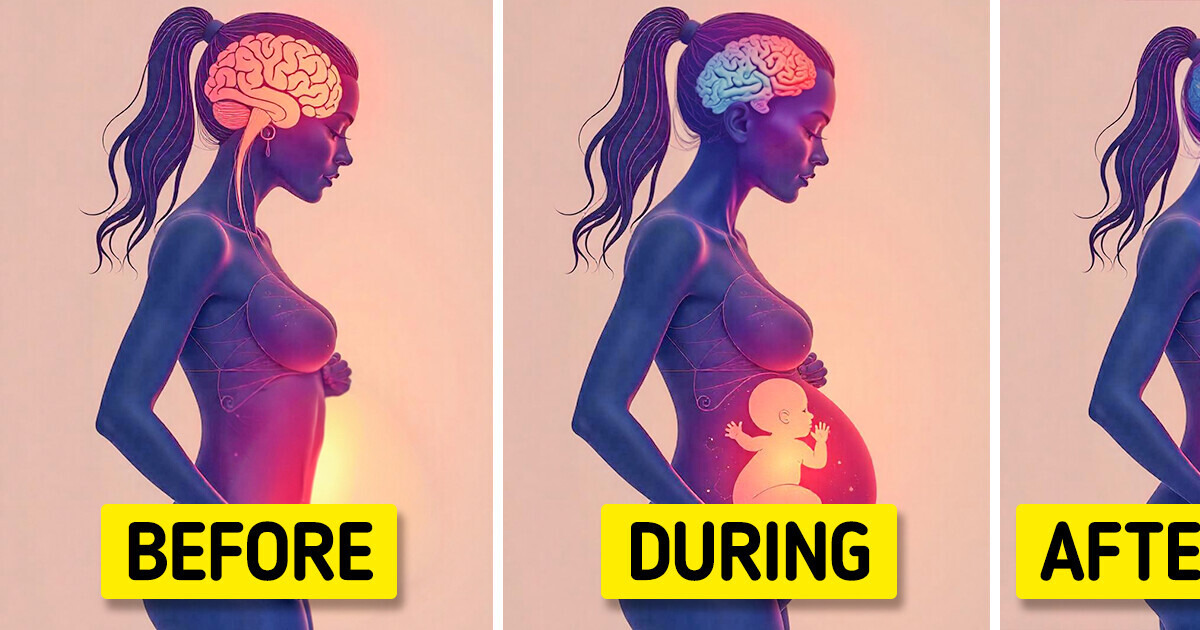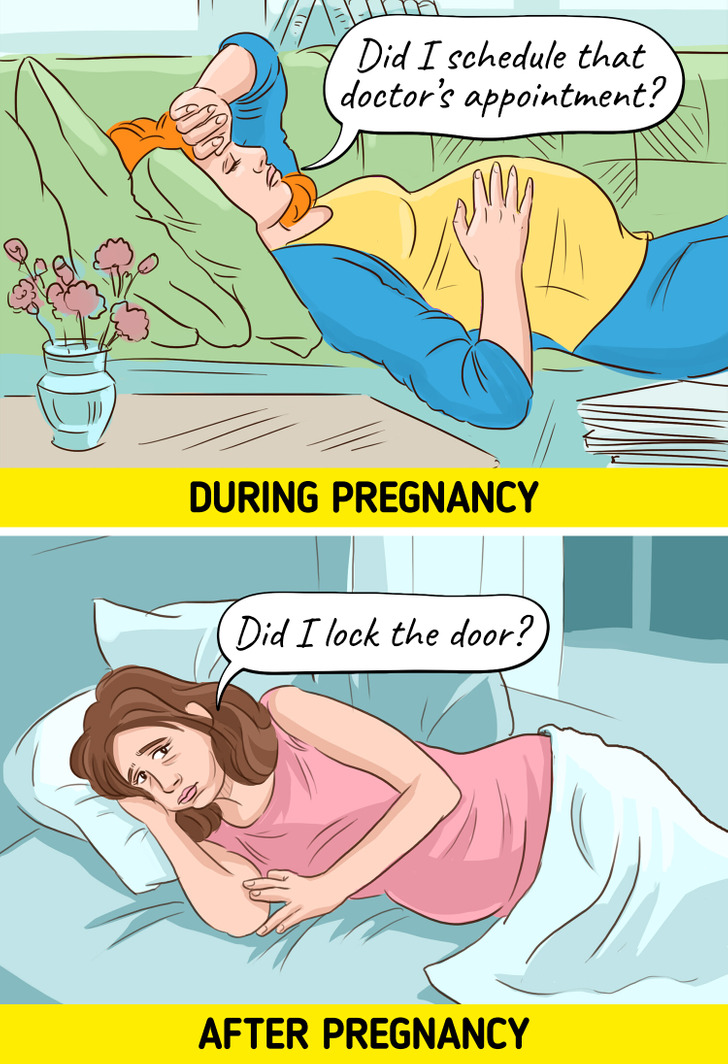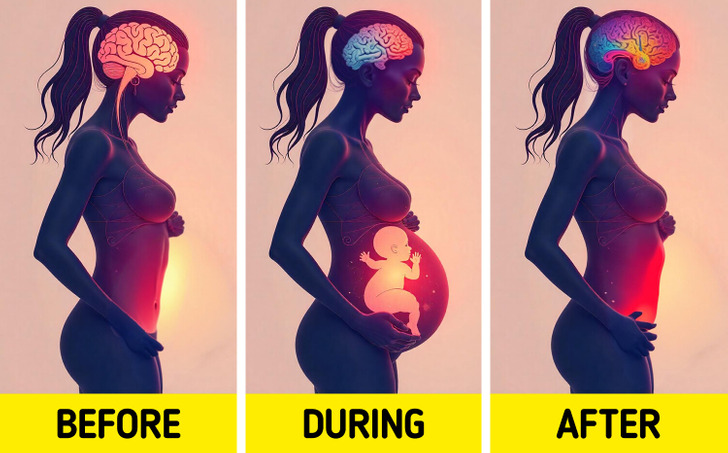Ok
Pregnancy Changes Your Brain Forever, Study Finds

Pregnancy is often called a time of transformation, but while we focus on the physical changes, there’s a fascinating shift happening behind the scenes—in the brain. New research reveals that pregnancy rewires the brain in remarkable ways, enhancing your ability to bond, nurture, and respond to your baby. Here’s what science has to say about "baby brain"—and why it’s not what you think.
Forgetfulness, mental fog, and even misplaced keys—many moms-to-be joke about “baby brain.”

But the truth behind this phenomenon is more inspiring than inconvenient. As pregnancy hormones like estrogen and progesterone flood your body, they reshape key areas of the brain, especially those involved in empathy and emotional processing.
According to Dr. Emily Jacobs, a neuroscientist from the University of California, Santa Barbara, these changes are all about making the brain more specialized for motherhood. Pregnancy brain shrinkage is not a bad thing, she explains. Think of it as a sculptor carefully chiseling marble to reveal something extraordinary. “You can see the sculpting of the brain unfold week by week,” she adds.
By just nine weeks into pregnancy, your brain begins its transformation.

Scientists have observed a, out of the 400 brain regions examined, 80% showed a decline in gray matter., particularly in areas that help you understand emotions and connect with others.
This “pruning” process might sound alarming, but it’s a sign of your brain becoming more efficient. Dr. Elseline Hoekzema, head of the Pregnancy and the Brain Lab at Amsterdam University Medical Center says these changes relate directly to a mother’s instincts. “Brain changes during pregnancy relate to the way a mother’s brain and body react to infants,” she notes.
These neurological tweaks aren’t just about bonding with your baby—they also help you adapt to the emotional and social demands of parenting, like staying patient during sleepless nights or understanding your baby’s cries.
Pregnancy hormones create a “window of learning”.

Scientists believe that pregnancy makes the brain more sensitive to cues from your baby. Dr. Ronald Dahl, a neuroscientist at the University of California, Berkeley explains that pregnancy hormones drive neurological changes, reshaping priorities and motivations and "sensitize individuals to learn adaptive things and create bonds and develop greater expertise in responding to an infant."
Even white matter, the brain’s communication highways, gets an upgrade during pregnancy. It becomes more efficient, like smoothing out a bumpy road. This change makes it easier for different parts of the brain to work together, helping you stay attuned to your baby’s needs.
The changes last beyond birth.

While some changes in the brain, like white matter improvements, fade after childbirth, others are long-lasting. The reduced gray matter volume in certain areas can persist for up to two years postpartum.
Dr. Jacobs calls these changes “permanent etchings in the brain,” designed to make moms more emotionally attuned and responsive to their children.
Interestingly, researchers found these patterns so distinct that they trained a computer to identify if a woman was pregnant based solely on her brain scans.
While pregnancy hormones drive these changes, they’re not the whole story.

Parenthood isn’t exclusive to biological mothers—fathers, adoptive parents, and others also display nurturing behaviors as the brain adapts to caregiving.
According to parenting researcher Dr. Jonny Kohl, the brain begins preparing for the major changes of parenthood much earlier than expected. He also emphasizes that human parenting is more intricate, involving classes, observational learning, and various environmental factors.

If you’re a mom-to-be, know this: those moments of forgetfulness or emotional sensitivity aren’t a sign that your brain is failing—they’re proof of its amazing ability to adapt and grow.
Understanding these changes can also provide comfort during difficult times, like coping with the mental load of parenting or navigating postpartum challenges. As Dr. Jacobs puts it, “The brain is tuned to prioritize information that helps you care for your baby.”
So the next time someone teases you about “baby brain,” wear it as a badge of honor. It’s not a flaw—it’s evidence of the incredible ways your brain is working to prepare you for motherhood.
While your brain adapts in incredible ways during pregnancy, there’s another factor at play. Stress levels may hold the key to determining your baby’s gender. Let’s dive into this fascinating discovery next.
Comments
Related Reads
Your Life Before and After Marriage, in Pictures

14 People Who Learned the Shocking Truth About a Friend

I Refused to Give Up My Baby, So My Mom Exposed a Terrible Secret

11 Stories That Prove Kindness Is the Courage We’re Searching For

18 Seniors Whose Sharp Wit Proves Humor Only Gets Better With Age

15 Moments That Prove Kindness Holds Strong When Life Hits Hard

20 Stories That Remind Us to Stay Kind Even When Life Stops Playing Fair

16 Stories That Prove Kindness Still Wins in Our Broken World

My Daughter Thought She Was Above Me, I Let Reality Prove Her Wrong

12 Moments That Show Romance Is Really About Small Acts of Kindness

15 Times People Refused to Be Mean—And Kindness Proved More Powerful

My Stepson Excluded Me From His Graduation—My Wife’s Reaction Crushed Me
